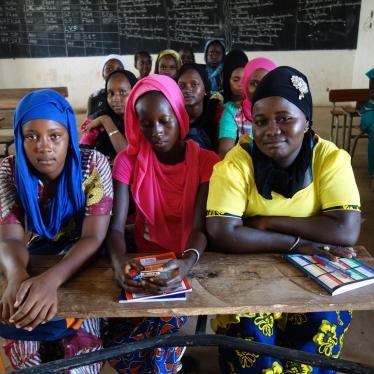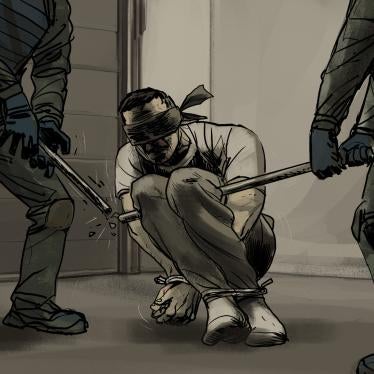In a year that’s seen the arbitrary detentions of Chinese legal activists and government critics like Gao Zhisheng and Liu Xiaobo, the Aug. 23 release of Xu Zhiyong, the head of the Open Constitution Initiative (Gongmeng), should be cause for celebration. There is of course profound relief that Mr. Xu has emerged from custody physically unscathed and after only a few weeks in detention—unlike Mr. Gao, whom we believe, based on his writings about his past detentions, has probably been tortured, or Mr. Liu, who is now in his second decade of being politically persecuted for his activism.
But there are few other reasons to celebrate. Even after the release of Mr. Xu, the larger picture is one of Chinese government assault on the rule of law and civil society.
Mr. Xu founded Gongmeng to provide legal research and aid to a host of people and causes, believing that his skills were best put to use in the existing legal system, helping with under-represented and controversial cases. That spectrum has ranged from representing petitioners in cases against local officials to attempting to defend Chen Guangcheng, a blind lawyer persecuted for exposing government corruption. As law professor at Beijing’s Post and Telecommunications University and as a member of the Haidian People’s Congress, Mr. Xu hardly embodied radical antigovernment sentiment.
But apparently a devotion to justice is perceived by the government as just that—a threat to its power. On July 29, Mr. Xu and Zhuang Lu, Gongmeng’s financial manager, were arrested for allegedly evading tax payments on a grant from Yale University, while Gongmeng itself was fined 1.4 million yuan ($206,000). Gongmeng had in fact attempted to pay some of the fine and expected to be represented at a court hearing on the matter, but Mr. Xu was arrested before having that chance.
The charges themselves are symptomatic of the challenges facing China’s proliferating civil society groups. Despite considerable obstacles, many groups do in fact try to comply with Chinese laws on registration. The rub? Only groups that have prior approval from a government agency can register as nonprofits, and groups created to remedy government shortcomings—be they in the areas of health care, corruption, environmental damage, or garden-variety physical abuse by local officials—have no hope of getting such permission. They instead register as “enterprises.” For years the government has opted not to enforce all of the “enterprise” requirements on groups like Gongmeng, and so its sudden zeal for doing so—and doing so to a particular group—is ominous for the entire civil society community.
That Mr. Xu was released on bail, rather than having the charges against him or Gongmeng dropped, means that the Sword of Damocles continues to hang over his head. He could still be prosecuted, and, if found guilty—which would seem inevitable given the highly politicized nature of the case—spend up to seven years in prison. Worse still, Gongmeng itself is effectively dead. The organization’s files and computers remain in the police’s possession, and the office is shuttered. The societal problems Mr. Xu tried to alleviate through Gongmeng are thus left to fester.
Mr. Xu’s problems also have to be set against the backdrop of the past year, in which virtually all of the prominent Chinese lawyers and legal activists struggling to defend human rights through the court system have been disbarred, imprisoned, or worse. The cumulative message of these developments is that even those who try to promote rights within the existing judicial system have no protection when authorities choose to clamp down.
Celebrations will be in order when the charges against Mr. Xu are dropped, when Gongmeng and other non-governmental organizations can operate free of arbitrary interference, and when Gao Zhisheng and Liu Xiaobo are freed. We can think of no better way for the Chinese government to demonstrate its recognition of basic rights on the eve of its sixtieth birthday than by giving some of its most dedicated citizens something to celebrate.
But instead, another week has gone by, and the news comes that yet another lawyer—this time in Liaoning Province—has been disbarred and allegedly tortured, reportedly for defending Falungong practitioners. The prohibition against Beijing lawyers offering to defend alleged “separatists” involved in the July 2009 Xinjiang protests remains in place. The example of Mr. Xu and his organization continues to discourage other would-be public service lawyers. And there is still no word of Gao Zhisheng.
Sophie Richardson is Asia advocacy director at Human Rights Watch.






